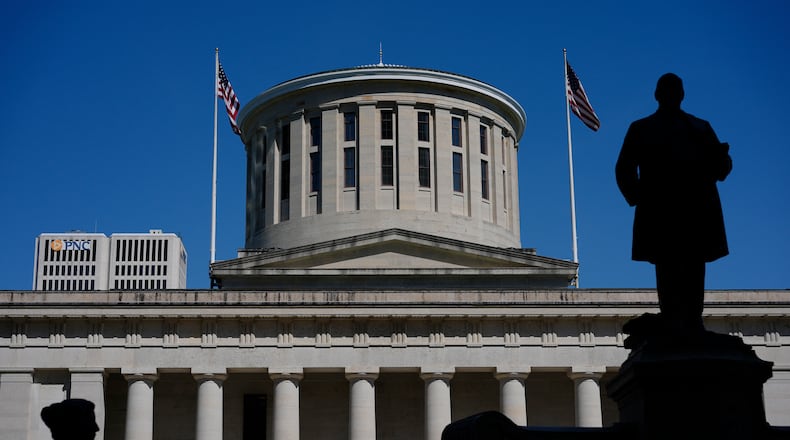Inside millage for townships wouldn’t be touched because they don’t have any other revenue options, but they would be limited to the amount they levied in tax year 2024.
Thomas, the former Ashtabula County auditor, defends the measure — that includes a host of other procedural changes meant to further insulate taxpayers from exploding tax bills — for over an hour on June 11 and will likely face more opposition Wednesday.
“You all probably remember my very first testimony, I said I don’t like to move fast, I don’t like to blow things up, I don’t prefer to have big things happening all at once, that’s not in the best interest,” the freshman lawmaker said. “However what’s also not in the best interest is the continuation of what we’ve seen and what we’ve had. We are at that tipping point, if we do not show strong, bold something of substance to our taxpayers they will act on our behalf.”
He was referring to the ongoing grassroots effort by the Committee to Eliminate Property Taxes to place a constitutional amendment on the November ballot eliminating property taxes.
And there are three other bill proposals already in the vetting process.
House Bill 129 would modify the 20-mill floor calculation and save taxpayers roughly $107 million next year. House Bill 186 limits increases in property tax revenues for school districts at the 20-mill floor to the three-year average rate of inflation, an estimated $41.9 million taxpayer boost. And House Bill 309 gives local budget commissions more power to lower bloated budgets.
Rep. Dan Troy, D-Willowick is against the proposal by Thomas.
“The problem I have here is what you’re basically saying is we’re going to provide property tax relief, but how we’re going to do that is take it out of the hands of all those local government entities out there who are providing what many people believe are critical services,” Troy said.
Troy said under this bill Cleveland Browns owner Jimmy Haslam will save $17,500, billionaire Les Wexner will save $157,500 and gubernatorial candidate Vivek Ramaswamy gets a $8,300 tax break, “how do you justify this is property tax relief when most of these savings will go to those that need it the least.”
Thomas denied the state is “walking away” from property tax relief because they have given the locals the “tools” to provide it, they just haven’t used them.
Property tax reform has become a priority statewide after property values exploded post-pandemic in the 30-to-40% range. Some county auditors are warning more increases in the 25% to 30% range are likely coming.
House Minority Leader Allison Russo, who was a special guest at the committee meeting, said she doesn’t normally get involved in tax issues but she was there on behalf of her constituents who have “significant concerns in the impact of this seismic change.”
“The reason that our local governments are having to increase or have additional levies or use the inside millage is because the state has consistently over the last few decades failed to meet its obligations to fund fully many of these essential services,” she said.
Rep. Elgin Rogers, Jr. D-Toledo, asked why the state couldn’t use its own sales and income tax “to help everyday Ohioans right now.”
“We’re moving from property taxes to sales taxes and we know that it’s a regressive tax,” he said. “The poorest people in the state will be spending more of their money they don’t have on goods and services. You’re putting a much larger burden on our greater society.”
Thomas said “frankly I think we are using those resources” by changing the policies that allowed the tax boom and forcing local governments to reexamine how they fund services.
About the Author
